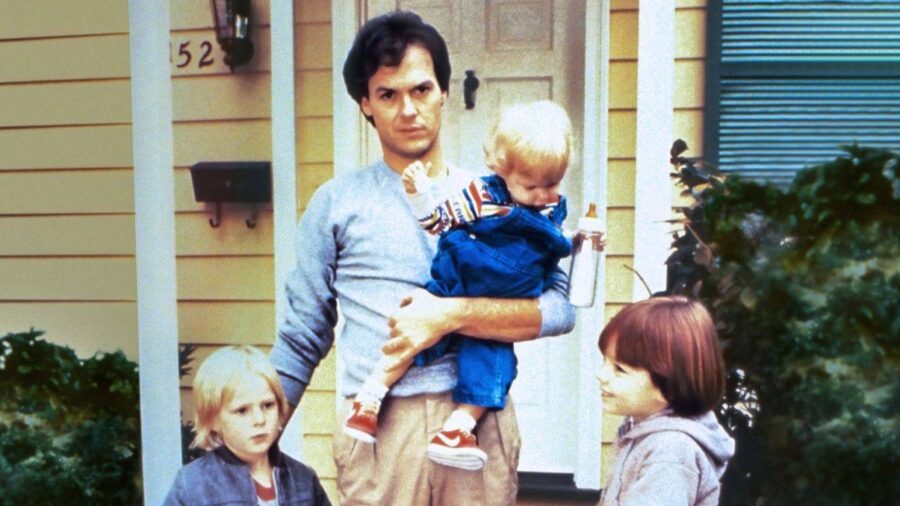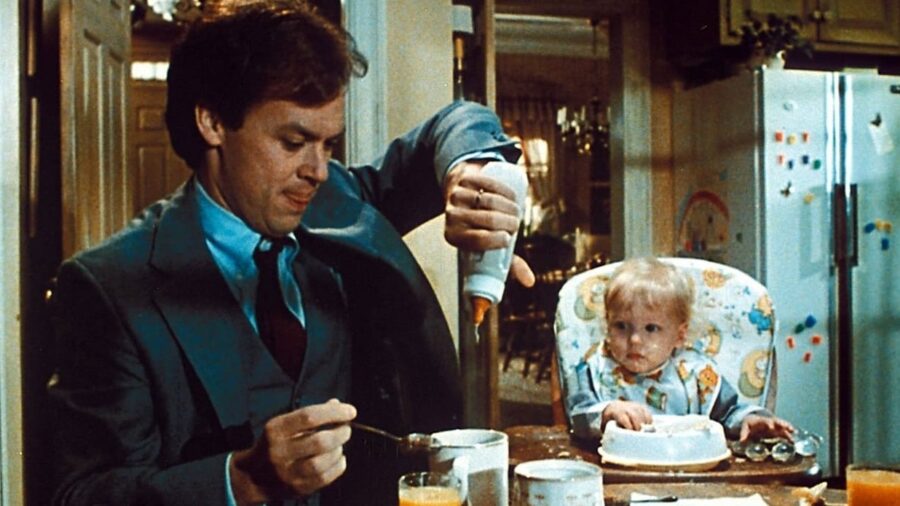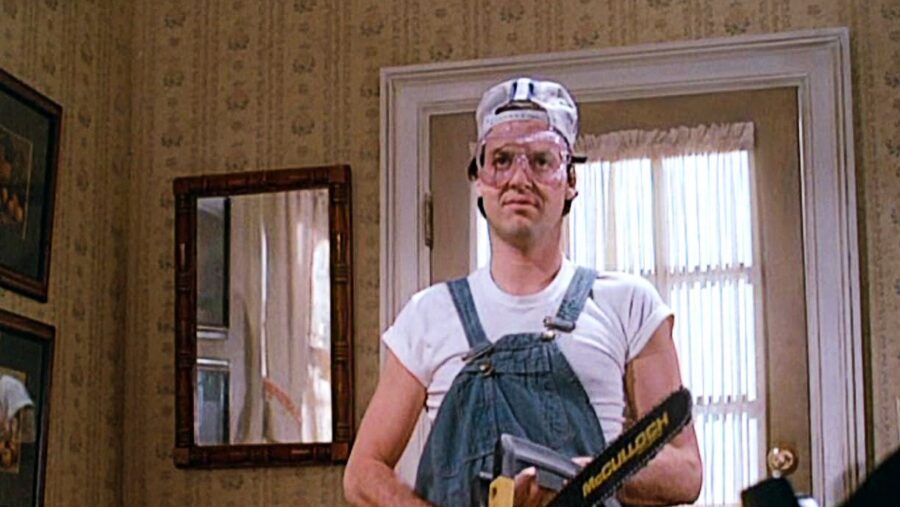Michael Keaton’s Best Movie Is Not Batman, It’s A Nightmare
Michael Keaton's 1983 comedy Mr. Mom uses his best qualities as a bewildered everyman.

Thanks to the newly released Super Bowl trailer for The Flash, Michael Keaton is back in the public eye in a big way. Although he has been reliably appearing in films since the early 1980s, many viewers will forever associate him with Tim Burton’s 1989 Batman, in which he played tormented, violent billionaire vigilante Bruce Wayne to enormous box office success. However, Michael Keaton’s best role cast him more appropriately as an affable, bewildered everyman unexpectedly pushed into the nightmare of being a stay-at-home dad in the 1983 comedy Mr. Mom, which is currently streaming on HBO Max.
Mr. Mom stars Michael Keaton as Jack Butler, a Ford Motors employee in Detroit who is furloughed from his job as the American auto industry begins its death spiral. When his wife Caroline (the radiant Terri Garr) unexpectedly gets a job in advertising to support the family, Jack takes over domestic responsibilities as a stay-at-home dad. As one might expect from Keaton in comedy mode, hijinks ensue.

From one perspective, Mr. Mom is a hopelessly outdated movie. Legendary filmmaker John Hughes wrote the script (adapted from his own previous National Lampoon article) based on his experience attempting and failing to watch his own children when his wife was unexpectedly called away. As one might expect, much of the humor of the film derives from the absurdity of an American man having to do things like shop for his own groceries, clean his own home, and actually be responsible for his own children.
While times have changed sufficiently enough that the idea of Michael Keaton’s character trying to figure out how to drop his kids off at school is no longer the exciting, unbelievable story it once was, the actual soul of Mr. Mom is not as regressive as it might be. In a lesser movie, both Michael Keaton and Teri Garr’s characters would struggle with their new positions and the status quo would reassert itself by the end, with everyone learning a little bit about the other’s lot in life but still happy to be back where they should be.

That is not what happens in Mr. Mom. While Michael Keaton’s character initially struggles to figure out his new role, he actually becomes a good father and housekeeper in surprisingly short order. Teri Garr’s character is great at her job, which she keeps at the end of the movie, rather than returning to the life of a housewife.
For a movie that is, on the surface, a goofy fish-out-of-water story, there is a surprising amount of sensitivity shown to issues like economic uncertainty, workplace sexual harassment, masculine insecurity, and divorce. Unlike so many films about domestic troubles, Keaton and Garr’s characters actually talk through their issues and come out stronger for it, not because of some wacky deus ex machina.
This is not to say that Mr. Mom doesn’t lean into the wackiness at times. Hughes’ script was eventually rewritten by Universal Pictures (who were apparently unhappy that the famously Chicagoan writer lived in Chicago), but his fingerprints are still all over it. Elements like the fearsome noisy washing machine in the basement are a clear precedent to Home Alone’s roaring basement furnace, while Hughes’ ear for bizarre, frustrating social interactions is on full display. There has perhaps never been a filmmaker so obsessed with protagonists being unable to articulate themselves to a customer service agent.
Mr. Mom was a success at the box office, raking in nearly $65 million at the box office (off a $5 million budget) and cementing Michael Keaton’s reputation as a comedic actor that would eventually lead to Beetlejuice, before being somewhat derailed by Batman. If you want to see Keaton at the peak of his comedic power, you cannot do any better than this movie.












